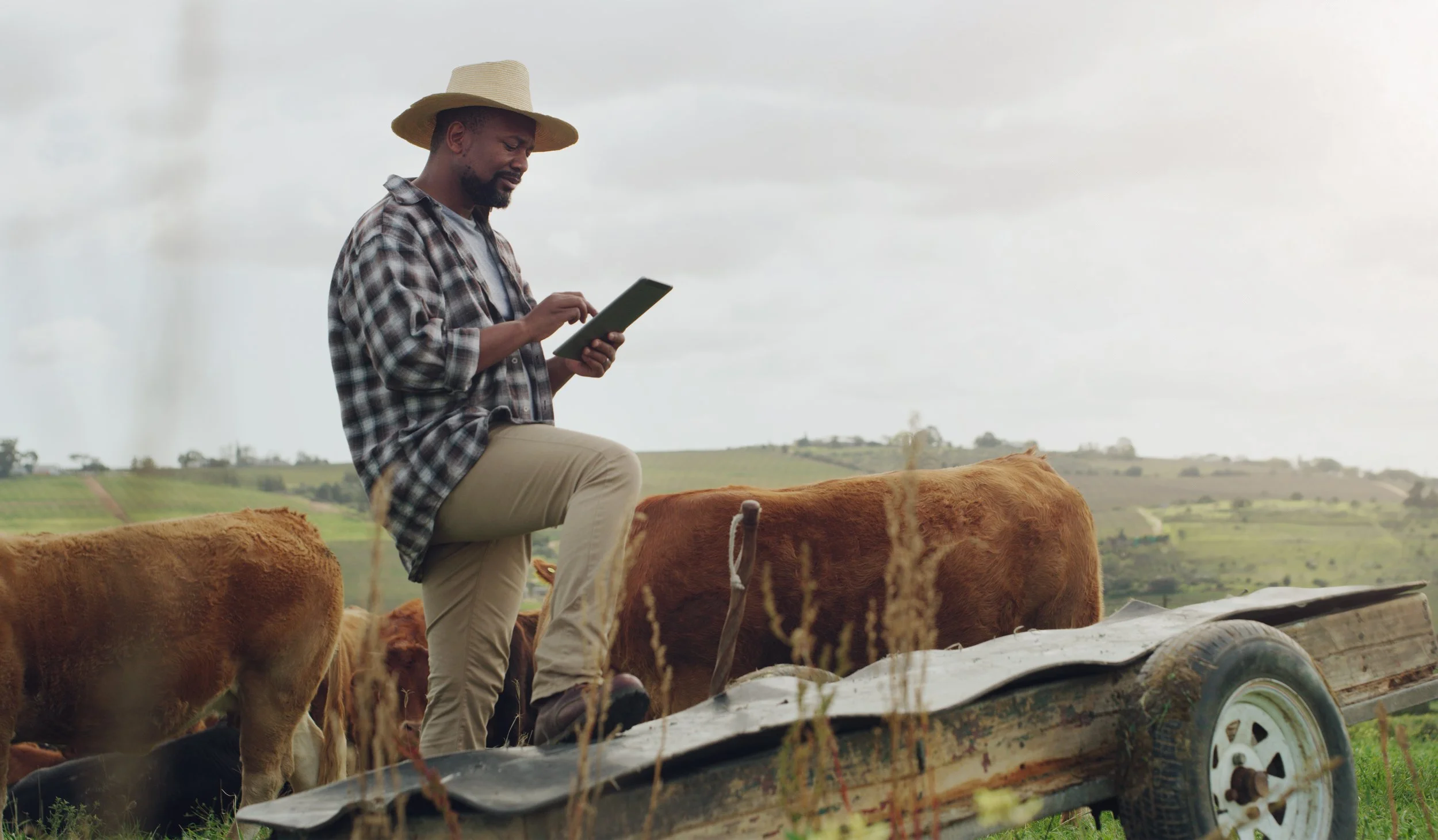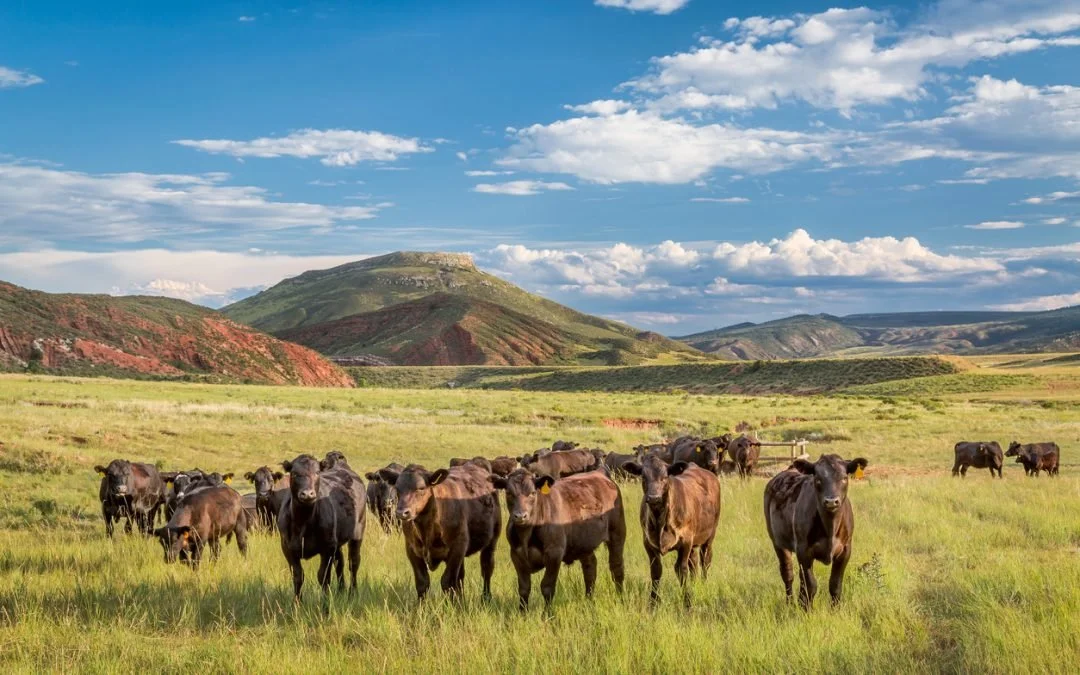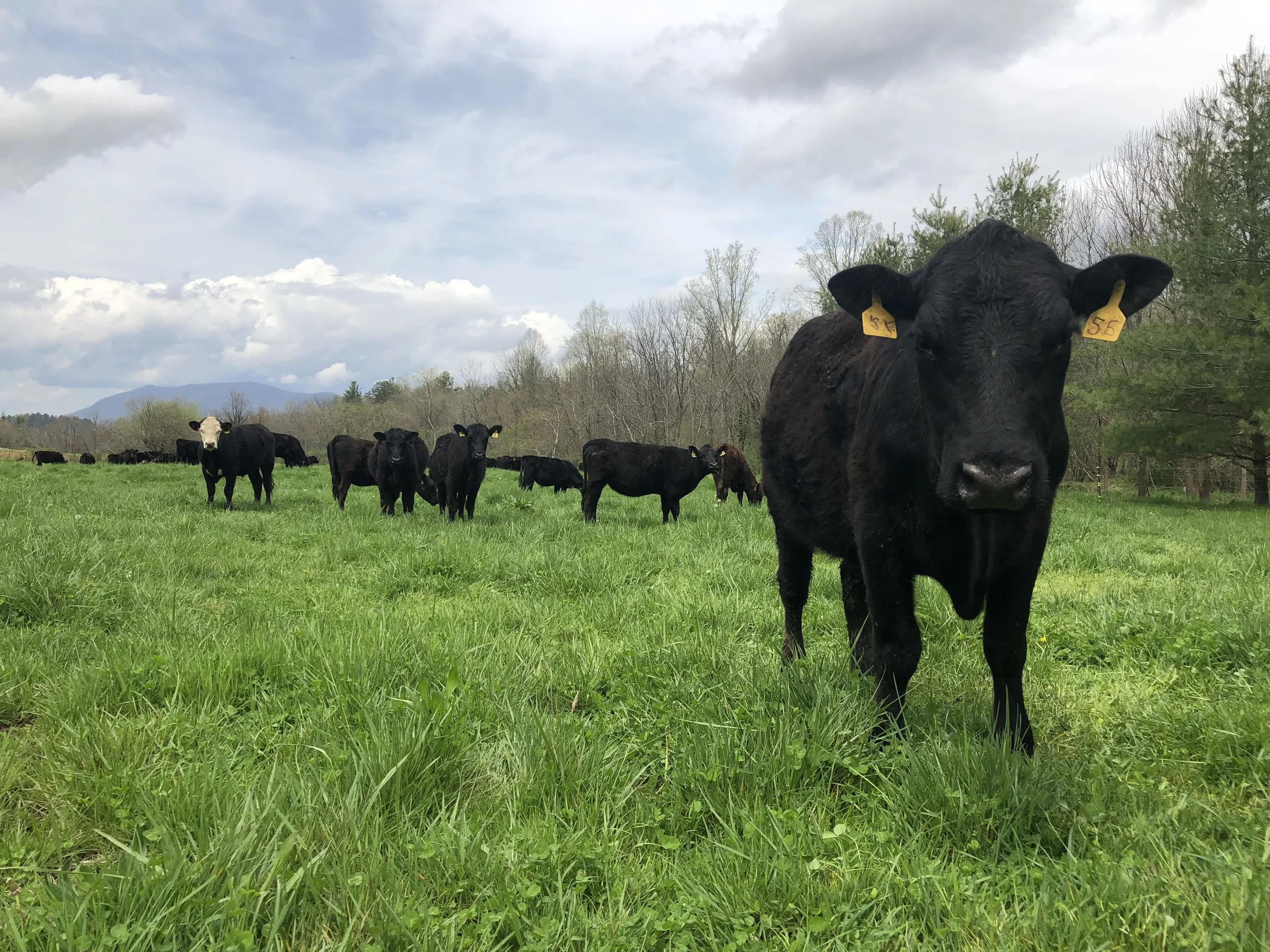CALL FOR FARMERS & RANCHERS
to partner on a Life Cycle Analysis study
The Growing GRASS project team is conducting an environmental study to understand the climate impacts associated with regeneratively raised cattle, particularly focused on hides for leather.
For the purposes of the study, “regeneratively raised” includes 100% grass-fed, management-intensive rotational grazing [MIRG] requirements.
Why? There is currently little publicly available research that analyzes the greenhouse gas footprint for the full life cycle (cradle-to-farm gate) for cattle raised under these systems.
The results of this study will…
Help regenerative producers understand how they might enter carbon markets.
Create additional markets for regeneratively grazed beef and beef byproducts (leather, offal).
Raise awareness among consumers and the general public on the benefits of regeneratively grazed cattle.
Provide clarity on the emissions associated with grass-fed beef and byproducts, as well as insight into the core drivers for soil carbon sequestration.
Benefits of Participation
Additional soil samples covered by the GGRASS grant (see "Soil sample testing requirements" below)
Research participation payments of $500 per year to compensate producers directly for time and information about their operation
Gain insights on regenerative performance of your farm compared to anonymized results of other farms included in the study
Audit cost share for GRASS certification through grant participation
Opportunity for future connection to technical services and measurement, monitoring, reporting and verification (MMRV) support through grant participation
Opportunities for connection to markets and marketing resources
How to Participate
The Growing GRASS project team is looking for qualifying producers to participate in this study. Participating producers agree to securely share their soils baseline data and farm management records starting from the baseline year, including informations on animals, feed, and grazing. Producers agree to have soil testing done on their property as well.
To participate in this LCA, producers must meet the following requirements:
-
Note: producers do not need to be certified under GRASS to participate but they do need to be eligible for GRASS certification.
100% grass-fed: Born, raised, and finished on open grass pastures, strict limits on grain feed. No feeding of animal by-products.
Biodiversity: All farms/ranches have a written pasture management and grazing plan that supports biological diversity, natural resources and soil fertility. Farms must also have a habitat/wildlife management plan.
Management Intensive Rotational (MIR) grazing: MIR grazing is a managed grazing approach using multiple paddocks to provide short periods of grazing to a higher number of animals followed by adequate recovery/regrowth time. Animal numbers are adjusted, and movement is adapted to ensure adequate forage per animal and grass recovery/regrowth according to prevailing weather conditions,
No confinement feeding: Feeding in confinement or a concentrated animal feeding operation (CAFO) is prohibited. Nighttime confinement is allowed to protect animals from predators.
Animal Welfare: Use of antibiotics, ionophores, or hormones prohibited. Shade, shelter, fresh air, & clean drinking water must be available. Use of cattle prods is prohibited, and herdsmen must use low-stress animal handling and herd movement techniques. Animals should be able to graze/feed without crowding or competition for food.
Non-GMO: Intentional planting of GMO seeds for on-farm forage prohibited.
-
Soil sample baseline of 2019 or earlier that includes:
Bulk density
Soil organic carbon
Soil cores ideally 1m depth, but a minimum of 40cm
-
Soil sample retesting 4-5 years after the baseline (some or all soil sampling costs can be covered by the Growing GRASS project).
Want to Participate? Reach out!
Please email the following information to kpeyton@purestrategies.com by February 15, 2025 if you have questions or want to be considered for the study. You can also reach us on the phone: 661-384-7344.
In your email, please include:
Farm name
Location (city, state, zip code)
Number of hectares/acres
Number of cows
Do you practice multi-paddock intensive rotational (MIR) grazing, and how do you define this



